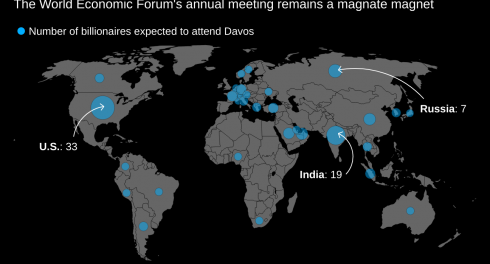In case you missed it…
Ever feel that your words just aren’t coming across? You are likely not alone – in a scenarios exercise on the future of fiscal transparency and accountability (more on that in future Weeklies), practitioners from across the globe flagged the failure to connect to broader constituencies as a challenge that will only grow. As Jonathan Fox notes, while anti-accountability forces are appropriating accountability slogans and ideas, language may be one barrier to the movement’s effective response. “Accountability keywords have different meanings, to different actors, in different contexts – and in different languages. The resulting ambiguities can either constrain or enable change strategies”. So, how to communicate more effectively? Repurpose existing terms or create new terms that can be popular because they resonate with already-existing common sense. Check out how Jonathan unpacked the keywords accountability, right to know, targeted transparency, whistleblowers, open washing, and sandwich strategies.
Talking about buzzwords, digitalization seems to crop up everywhere now and again with varying intents. Regardless of interpretation, the trend does lay down a challenge to those working in the governance space. DFID has released its three-year strategy “Doing Development in a Digital World” and we are keen to hear what resonates. It lays out a generally positive approach but does warn of the risks posed by “state and corporate use of digital technologies to control rather than empower citizens”. Music to the ears of Lucy Bernholz who again serves warning of the risks of digital dependence, especially for the non-profit sector – “civil society cannot meet its aspirational roles in democracies without a much stronger understanding and adaptation to its dependence on digital data, software, hardware and their political and economic structures – and the new opportunities and risks that come with these digital dependencies.”
Tony Roberts picks up on this theme, more broadly highlighting the threat of digital imperialism. The best defense? Critical digital literacy skills. Although Kevin Keith might ask us to think bigger picture as he calls for a new social contract for the digital age. That might help in dealing with risks associated with AI and machine learning (read this primer on algorithmic accountability to learn more). A new nonprofit newsroom in New York City focused on investigating technology and algorithms may help raise awareness.
What is the role of philanthropy in all this? While funders have announced various initiatives (including TAI members), Philip Rojc and David Callahan lay down a challenge to funders. Be tougher on big tech companies and push for bolder reforms (“it isn’t rocket science” they say), rather than taking the safe route (i.e. narrow focus on countering misinformation and disinformation). That criticism could extend to US lawmakers and their agents, too, according to April Glaser who wonders why tech firms have been able to appoint their own reviewers after data breaches – watchdogs that failed to bark. “The people most equipped to propose a way to regulate large internet platforms and then fight for it have been jarringly quiet.”
Your inbox has probably swelled in recent days by demands to renew agreement to data use terms and conditions. This reflects organizations’ struggles to get ready for the EU General Data Protection Regulation Act. The legislation should mark a transparency shift regarding data use, yet the majority of companies are struggling to comply according to estimates detailed in the Economist. And based on the latest Ranking Digital Rights Corporate Accountability Index, many of the world’s most powerful internet, mobile, and telecommunications companies fall short when it comes to transparency and protecting freedom of expression and privacy. What of civil society groups? Are they ready? The Engine Room say they are. Check out how they did it.
A digital future should mean opportunities and challenges for the open data movement. The Open Data Watch explores the potential of a global fund for development data. The ODI has updated its Data Ethics Canvas (see graphic below) along with a user guide and workshop plan. And the US Consumer Financial Protection Bureau has made bank consumer complaint data public, making the case that open, easy-to-use and clear-to-understand data can even the power playing field a little bit. What of the more ambitious task of rebuilding trust? Open data/government gurus laid out steps to that end in a recent convening organized by the Beeck Center.

The EU Justice Commissioner is off to Malta to look into the country’s anti-money laundering process and the investigation of slain journalist Daphne Caruana Galizia. Encouragingly, 45 journalists from 15 countries are continuing her work (and that of other killed, imprisoned and incapacitated journalists) through the Daphne Project, for example, revealing Maltese taxpayers are losing money to Azerbaijan’s state-owned oil and gas company Socar.
Meanwhile, the political casualties of popular anger related to systemic corruption continue to mount. This time Armenia’s leader was added to the list, while Brazilian President Michel Temer has denied allegations of laundering $577,250 in bribes. In Malawi, anti-corruption protests greeted the return of former president Joyce Banda. In Indonesia, could the conviction of former House Speaker Setya Novanto be a turning point in the country’s fight against corruption? Mongolia’s top watchdog is under increasing political pressure. Also, check out this IMF panel highlighting corruption as a “macro-critical issue” in line with their new framework and the importance of the anti-corruption crusade to help mend the trust divide. Beyond the fancy words, Transparency International lays out what they will be looking to see a year from now from the Fund.
Norway tops the 2018 World Press Freedom Index; North Korea sits at the bottom. Reporters Without Borders’ latest report paints a grim picture of the state of media freedom – a growing hostility towards journalists that is not only limited to authoritarian but also among democratically-elected leaders. At least journalists’ ability to rely on whistleblowers may be strengthened by the EU’s Whistleblower Directive – “a bold step in the right direction” as described by Transparency International describes it. Hopefully, despite the EU label, it can still inspire action in the UK where Tom Fox offers reasons as to why whistleblower complaints are significantly down.
How can adaptive management improve development outcomes? USAID conducted a literature review on the impact of collaborating, learning and adapting. USAID has also summarized its 12 key findings into one infographic if you’re short on time.
Can community philanthropy shift power? This paper describes a model that engages the community as equal partners and contributors in external philanthropic initiatives as a power-leveling approach. Increasing community buy-in can help grantees build a constituency to mitigate vulnerability to shrinking civic space.
Finally, for our roundup of tax stories: Nathan Jensen talks about governments providing billions of dollars in subsidies to companies in secret. In the Netherlands, the Ministry of Finance fears that a proposed abolition of dividend tax could attract corporations seeking to evade tax. Mauritius froze 91 bank accounts linked to Angola’s tycoons. An investigation on the hidden wealth of Ukraine’s Odesa Mafia illustrates how UK’s Overseas Territories and Crown Dependencies offer little protection against money laundering. Murray Worthy proposes to put an end to Overseas Territories from selling secrecy as the UK government fears a vote (around the time this Weekly goes to press) that would overturn policy and require Territories to create public registries. Is the UK ready to expose Russian tycoons and oligarchs laundering money in its territories? Francis Elliot talks about the possibility, as Global Witness’ new report affirms the need as Russian funds flowing into British Overseas Territories eclipse those going into the UK itself.
Podcast of the week/ Listen : ODI Talks
Our proposed long read: The Global Battle for Corporate Transparency
TAI spotlight
- In our Grantee Perception Report, There’s Room for Improvement— Here’s How We’re Responding | Ford Foundation Ford Foundation responds to feedback from their grantees and takes measures to improve transparency and effectiveness
- DFID IATI Guidelines – DFID encourages funding partners to publish to IATI and releases policy and technical guidelines
- What We Fund on Tax and Why – How will our donor members seek to affect change in tax transparency and accountability collectively? Explore our Taxation and Tax Governance webpage
Other stories
Study Tallies 260,000 Foundations Worldwide, With Education as Top Cause
Nearly three-quarters of grant makers were established in the last 25 years, according to the report by the Hauser Institute for Civil Society at Harvard University.
OGP shares key learnings from round of analysis of OGP action plans
Fashion Transparency Index – How transparent are the 150 biggest brands?
Licence to Blog: Will ‘Swahili WikiLeaks’ Have to Close? – Tanzanian government now asks bloggers to pay $920 to post content online as measure to address hate speech and fake news; bloggers express concern over restricting freedom of speech
The Aadhaar Debate: Where Do We Go from Here? How do you balance development with data privacy concerns and potential exclusion? Alan Gelb and Anit Mukherjee glean lessons from the world’s largest (and controversial) biometric program.
Calls
- Pakistan’s 1st SDG 16 Innovation Challenge– May 5
- 360Giving Data Expedition – May 11
- A Call for Ideas Seeks Solutions to Curb the Spread of Misinformation – May 31
- Survey of the Digital Ecosystem
Calendar
- Adaptive Leadership Masterclass Dates – May 2018 (various Canadian cities)
- Grantmakers for Effective Organizations National Conference – April 30 – May 2, 2018 (San Francisco, CA)
- OpenGov Week – May 7- 11
- On Think Tanks Course: Cutting-edge Communications for Research and Policy (online) – May 15-July 3, 2018)
- RightsCon (human rights in the digital age) – May 16 – 18 (Toronto, Canada)
- 8th European Investigative Journalism Conference and Data Harvest – May 24- 27 (Mechelen, Belgium)
- OGP Global Summit 2018 – July 17- July 19 (Tbilisi, Georgia)
- 4th Annual African Tax Research Network Congress – September 10-12 (Morocco)
- The Future is Open: 5th International Open Data Conference – September 20-21, Buenos Aires
- Evaluation for More Resilient Societies – October 1-5 (Greece)
- 18th International Anti-Corruption Conference – October 22-24 (Copenhagen, Denmark)
- BigSurv18 – Spain, Oct 25-27 (Barcelona, Spain)


